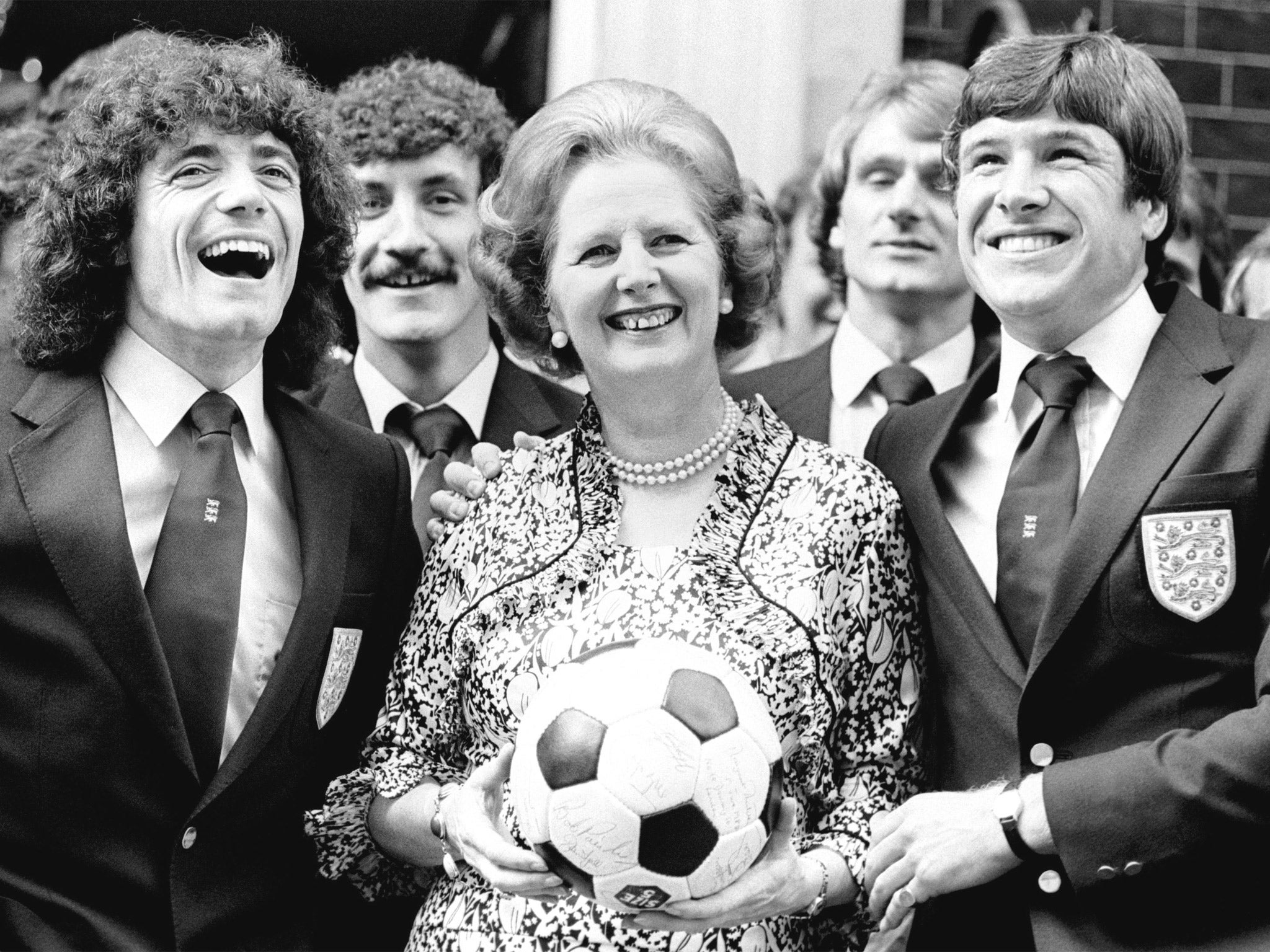Ian Herbert: A minute's silence? Margaret Thatcher was not one of us when it came to sport
Her compulsory membership plan for supporters was detested and failed

The best story about Margaret Thatcher’s relationship with sport is told by John Major and provides a little insight into why the Premier League has informed clubs that they will not be needing to hold a minute’s silence to mark her death.
Major relates in his autobiography how Thatcher’s occasional attempts to display an interest in sport – a field of life in which she had none – led her to attend the 1988 Scottish Cup final, at the conclusion of which she “held forth at length on the performance of a player”. That individual was listed in the match programme but “had not in fact played on the day”, Major tells. “Amid much embarrassed shuffling of feet and gazing at the ceiling, no one told her.” Such was the absence of any kind of empathy between Thatcher and the world of those in sport.
She used this realm when it suited her, asking British athletes to boycott the 1980 Olympics in Moscow following the Soviet invasion of Afghanistan, for instance (some competitors did stay away but many more, including a disgusted Sebastian Coe, refused, believing it to be tokenism). She also considered ordering UK football teams to pull out of the 1982 World Cup after Britain went to war with Argentina over the Falkland Islands, though neither England, Scotland nor Northern Ireland were due to play in the same group as Argentina, in Spain. Diplomats feared that a boycott could be used by Argentina as a propaganda coup if the two foes collided in the later stages of the tournament and once again Thatcher was forced to back off.
The sporting world was one she did not understand – despite the love of golf enjoyed by her husband, Denis, a former rugby referee – and the Associated Press has already pointed to Coe’s own autobiography as evidence. “She never really understood sport until it migrated – and sometimes mutated – beyond the back page, or impacted on other areas of policy,” wrote Coe, who became a Conservative MP and whose first of two 1500m Olympic titles came in Moscow.
Where football was concerned, there was something more than a lack of appreciation. In 1985, her summoning to Downing Street of the FA secretary Ted Croker was a defining moment in her relationship with the sport. Millwall fans had just rioted at Luton Town, and Thatcher demanded to know from Croker what he intended to do about “his” hooligans. Croker bravely replied that they were not football’s hooligans they were “your” hooligans, and we “don’t want your hooligans at our sport”.
Some degree of circumspection is required before we demonise her for her part in the aftermath of the Hillsborough disaster four years later. Thatcher visited the stadium with her Home Secretary Douglas Hurd before fans’ bodies had even been removed from the makeshift mortuary at Sheffield Wednesday’s ground the morning after.
Though that has since been posited as proof of a conspiracy with South Yorkshire Police, last September’s Hillsborough Independent Panel (HIP) report found no such evidence.
Thatcher’s letter to Derrick Walters, Dean of Liverpool Cathedral, detailing her deep appreciation of a private meeting with victims’ families, is also in the HIP’s archive, though it is undeniable that she and her government were obsessed with hooliganism, as they saw it, rather than the need for clubs like Bradford City, scene of the 1985 fire, and Sheffield Wednesday to make football stadiums safe.
While the public apology to Liverpool supporters for the way they were maligned and blamed would not arrive until her own life was slipping away, Thatcher used Hillsborough to press ahead with detested plans for Europe’s first compulsory membership scheme for football fans. It was dropped in the face of opposition led by the Labour Party, which described membership cards as “an offence against common decency”. What did change in football – following the Taylor Inquiry which Thatcher had ordered – was the introduction of all-seater stadiums that made matches in England among the safest in the world in the years after Thatcher quit in 1990 and was succeeded by Major.
It can be said in Thatcher’s defence that she did not court sport in the way that Tony Blair did so excruciating by appearing on Football Focus or heading a ball with Kevin Keegan, or indeed Gordon Brown, whose notorious, stage-managed photo opportunity of him watching football is less remembered. But it can also be said that she was a woman who delivered the bleakness and hopelessness of post-industrialism to the back streets which football’s spirit occupied. That is why Sir Alex Ferguson, when once told by a journalist that he and Thatcher shared an ability to survive on only five hours’ sleep, replied: “Don’t associate me with that woman.”
Join our commenting forum
Join thought-provoking conversations, follow other Independent readers and see their replies
Comments